SA HAS been put on notice for a downgrade by Moody’s Investors Service, and Finance Minister Pravin Gordhan and other government leaders will next week have to convince the agency otherwise with concrete plans to avert such a step.
Until recently Moody’s had been the most upbeat among rating agencies about SA, but said yesterday it would downgrade if it was not convinced that debt could be managed, or found evidence of "further shocks" to economic growth.
How the government plans to grow the economy and stabilise debt in the medium term will be crucial for the rating. "After the review, we could affirm the rating if committee members were to conclude that spending restraint will be maintained and reforms are implemented," Moody’s vice president Aurelien Mali said. "It is premature to know what the outcome will be. In fact we could downgrade or confirm the rating."
After last month’s budget, the agency flagged a lack of detail on how deficits would be reduced.
On Wednesday it reiterated the importance of implementation, with Mr Mali saying: "Government spending restraint was clear in the budget, but reforms and the successful implementation of fiscal consolidation is very important."
Further deterioration in the investment climate would be a factor if it undermined medium-term growth prospects, the agency warned.
Although it did not give any examples, the firing of former finance minister Nhlanhla Nene in December knocked confidence in SA.
A day after the budget, it emerged that Mr Gordhan was involved in an intense political fight with South African Revenue Service Commissioner Tom Moyane, and had threatened to quit if President Jacob Zuma did not remove Mr Moyane.
The African National Congress’s (ANC’s) head of economic transformation Enoch Godongwana yesterday said the party saw Moody’s trip as an opportunity to show it the work being done to pull SA out of an economic "crisis". Mr Zuma’s meeting with business leaders ahead of last month’s budget had set in motion a number of initiatives, he said.
The ANC, however, remained concerned about low growth.
Mr Godongwana said it was important for leaders to behave in a manner that did not "undermine the good work" being done, and that the government was getting on top of the tension between Mr Gordhan and Mr Moyane.
In December Moody’s flagged high debt when it downgraded SA’s rating outlook to negative.
SA’s debt to gross domestic product (GDP) ratio has increased to 50% of GDP from levels of about 26.5% in 2009. Downgrades raise the cost of borrowing. The Treasury is more optimistic on economic growth rate this year with a forecast of 0.9%, but Moody’s projected a mere 0.5%.
What counts in SA’s favour is that Moody’s would need to downgrade by two notches for the rating to fall to speculative or junk status.
A one notch downgrade will put Moody’s rating in line with that of Fitch and Standard & Poor’s — which is just one level above junk.
Although Moody’s has "in some occasions" downgraded a country’s rating by more than one notch, it would be "inappropriate to speculate" that the same could happen to SA, Mr Mali said.
The agency will also examine whether recent reforms have reduced work stoppages from strikes, and assess the implications for policy of political events such as the local government elections. The agency could leave the Baa2 rating unchanged if its review concluded that policy makers would maintain spending restraints, succeed in structural reforms, and achieve fiscal consolidation, it said.
But an index out yesterday showed just how difficult it would be for economic growth to gain traction this year.
At 36 — a historic low — the Rand Merchant Bank/Bureau for Economic Research’s (RMB/BER) business confidence index pointed to weak economic growth this year, RMB chief economist Ettienne Le Roux said.
IHS senior economist Thea Fourie said business confidence would be hit by several factors, including higher interest rates; the threat of downgrades; and sluggish commodity prices. With confidence so low investments and job creation by the private sector have stalled. Fixed investment spending was expected to remain muted with some support only from ongoing large public sector projects such as in renewable energy, she said.
The business confidence index is compiled after a survey of 1,750 business people in the retail, wholesale, building, new vehicle dealers and manufacturing sectors.
The neutral point is 50, and it has remained well below that for most of last year. Confidence among manufacturers collapsed to levels last seen during the 2009 recession.
With Sam Mkokeli


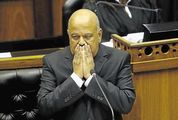
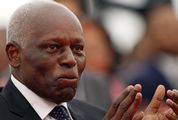




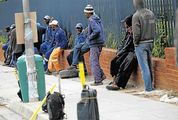
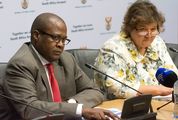
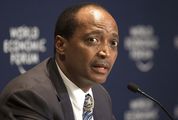





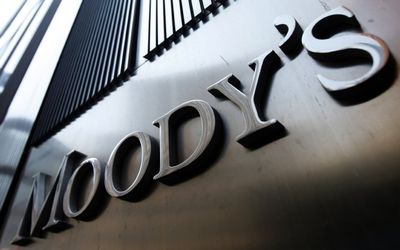








Change: 0.40%
Change: 0.47%
Change: -0.49%
Change: 0.53%
Change: 1.03%
Data supplied by Profile Data
Change: 1.71%
Change: 1.28%
Change: 0.40%
Change: 0.00%
Change: 1.64%
Data supplied by Profile Data
Change: -1.27%
Change: 0.00%
Change: 0.05%
Change: -0.08%
Change: 0.35%
Data supplied by Profile Data
Change: -0.02%
Change: 0.21%
Change: -0.06%
Change: 0.53%
Change: 0.70%
Data supplied by Profile Data